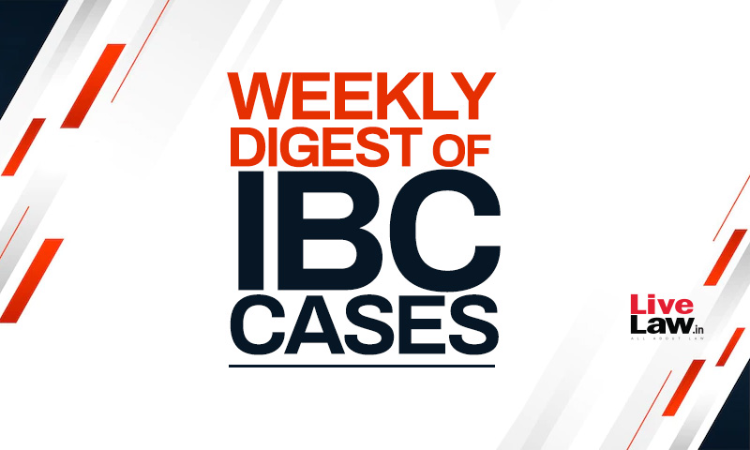Next Story
2 May 2022 9:36 PM IST
Supreme Court1. Insolvency and Bankruptcy Code Is Not For Money Recovery Proceedings: Supreme Court ReiteratesCase Title: Invest Asset Securitisation and Reconstruction Pvt. Ltd. v Girnar Fibres Ltd.Case No.: 2022 LiveLaw (SC) 423 The Supreme Court bench comprising of Justice Dinesh Maheshwari and Justice Aniruddha Bose reiterated that the provisions of Insolvency and...

